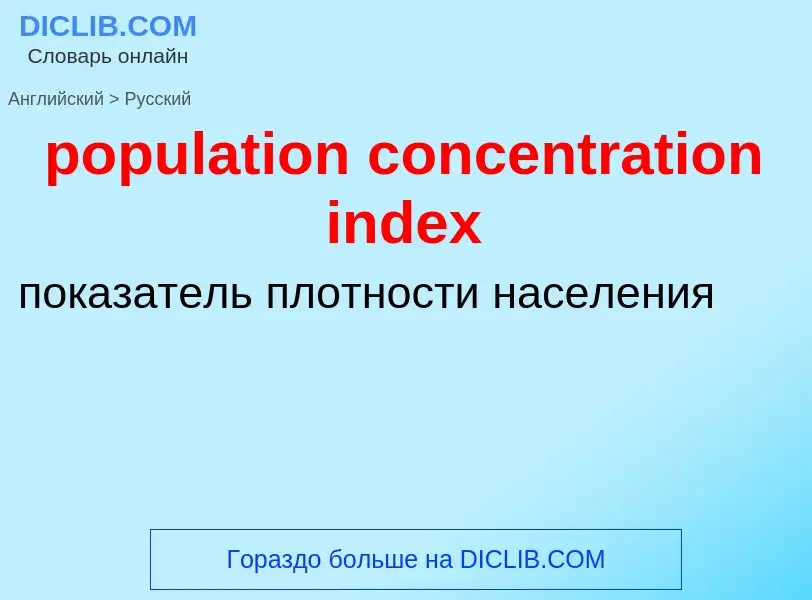Enter a word or phrase in any language 👆
Language:
Translation and analysis of words by ChatGPT artificial intelligence
On this page you can get a detailed analysis of a word or phrase, produced by the best artificial intelligence technology to date:
- how the word is used
- frequency of use
- it is used more often in oral or written speech
- word translation options
- usage examples (several phrases with translation)
- etymology
population concentration index - translation to russian
Index of concentration; Whipple's Index; Age heaping
population concentration index
показатель плотности населения
concentration
TYPE OF PHYSICAL PROPERTY; THE ABUNDANCE OF A CONSTITUENT DIVIDED BY THE TOTAL VOLUME OF A MIXTURE
Concentrations; Concentration measurements; Dose concentration; Concentration (chemistry); Diz stuff; Diluting; ACnc; Chemical concentration; Mole ratio; Conc
concentration noun 1) концентрация; сосредоточение; сосредоточенность; крепость (раствора) 2) сгущение 3) обогащение руды 4) attr. - concentration camp
concentration
TYPE OF PHYSICAL PROPERTY; THE ABUNDANCE OF A CONSTITUENT DIVIDED BY THE TOTAL VOLUME OF A MIXTURE
Concentrations; Concentration measurements; Dose concentration; Concentration (chemistry); Diz stuff; Diluting; ACnc; Chemical concentration; Mole ratio; Conc
сущ.
1) концентрация, сосредоточение;
2) сосредоточенность;
3) сосредоточение сил;
4) скопление индивидов в наиболее благоприятных местах существования.
Definition
митотический индекс
показатель митотической активности ткани или культуры ткани, представляющий собой число делящихся путем митоза клеток из 1000 изученных на гистологическом препарате.
Wikipedia
Whipple's index
Whipple's index (or index of concentration), invented by American demographer George Chandler Whipple (1866–1924), is a method to measure the tendency for individuals to inaccurately report their actual age or date of birth. Respondents to a census or other survey sometimes report their age or date of birth as a round number (typically ending in 0 and 5), or to be more culturally favorable, for example, so that they appear younger or to have been born on a date considered luckier than their actual date of birth. The process of reporting a rounded or “lucky” age is known as age-heaping.


